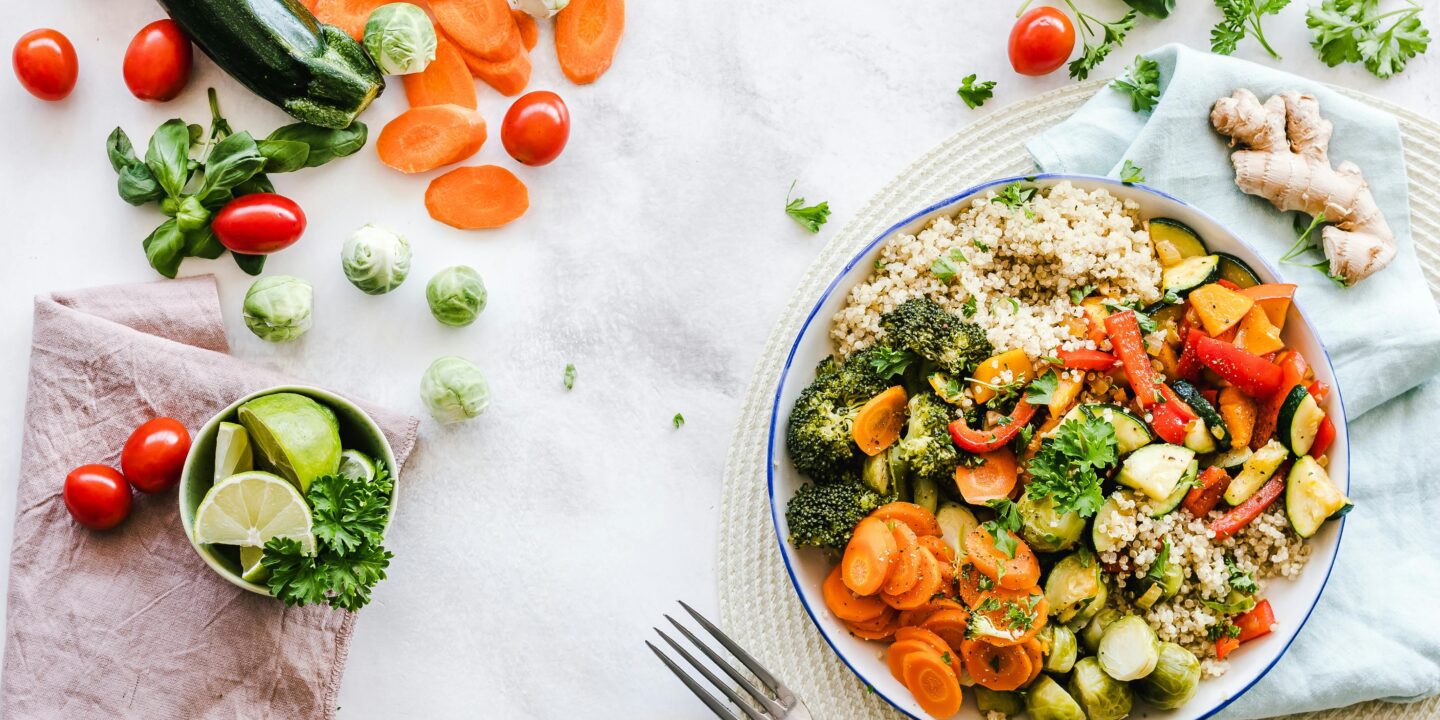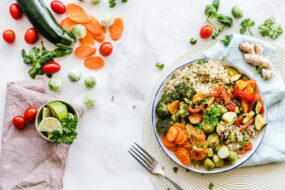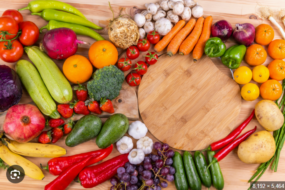
In our fast-paced world, maintaining consistent energy levels throughout the day is a challenge many face. Whether you’re juggling work, family, fitness, or simply trying to make it through your to-do list, the food you eat plays a central role in how energized—or drained—you feel. The good news? Eating for energy doesn’t require extreme diets or complicated meal plans. With a little knowledge and intention, you can build meals and snacks that support sustained vitality from morning to night.
Let’s explore how food affects energy, which nutrients to prioritize, and the best foods to keep your engine running at full throttle.
How Food Fuels the Body
Your body gets energy from three main macronutrients: carbohydrates, proteins, and fats. Each plays a unique role in energy metabolism:
- Carbohydrates are your body’s preferred energy source. They’re broken down into glucose, which fuels your brain and muscles.
- Proteins support muscle repair, immune function, and enzyme production. While not your primary energy source, they help keep you full and stabilize blood sugar.
- Fats are the most concentrated energy source, offering long-lasting fuel. Healthy fats also support hormone production and nutrient absorption.
In addition to macronutrients, micronutrients like B vitamins, iron, magnesium, and vitamin C are critical for converting food into usable energy.
Energy Saboteurs: What to Avoid
Before diving into the best energy-boosting foods, let’s touch on what to limit. These common food choices may provide a quick jolt, but ultimately lead to crashes:
- Refined sugars: Think candy, soda, sweetened cereals. These spike your blood sugar and insulin levels, then cause a steep drop.
- Highly processed foods: These often lack fiber and essential nutrients, leading to sluggish digestion and poor energy returns.
- Caffeine overload: While a cup of coffee can help, relying heavily on caffeine can disrupt sleep and cause dependency.
Morning Fuel: Kickstart With a Balanced Breakfast
Your first meal sets the tone for the day. Skipping breakfast or grabbing something sugar-heavy can lead to energy dips and cravings.
Best Morning Choices:
- Oatmeal with nuts and berries: Whole oats are a slow-digesting carb, while nuts add healthy fats and protein. Berries bring antioxidants and natural sweetness.
- Greek yogurt with chia seeds and fruit: Rich in protein, probiotics, and omega-3s.
- Avocado toast with eggs: The perfect combo of fiber, fat, and protein to keep you full and energized.
Pro Tip:
Add a source of protein to every breakfast. This helps stabilize blood sugar and reduces that mid-morning crash.
Mid-Morning Boosters: Keep Energy Steady
By mid-morning, many people reach for a second coffee or sugary snack. Instead, try smart snacks that offer a mix of macros and keep blood sugar stable.
Smart Snacks:
- Apple slices with almond butter
- Trail mix with nuts, seeds, and a few dried fruits
- Boiled eggs with cherry tomatoes
- Hummus with carrot sticks or whole-grain crackers
Hydration is equally key. Fatigue is often a symptom of mild dehydration. Aim to sip water regularly, and consider adding electrolytes if you’re very active.
Power Lunches: Avoid the Post-Lunch Slump
Lunch should refuel you without making you sleepy. The culprit of the infamous 2 PM crash? Heavy, carb-dense lunches lacking protein and fiber.
Ideal Lunch Combos:
- Grain bowls: Start with quinoa, brown rice, or farro. Add leafy greens, roasted veggies, a lean protein (like grilled tofu, salmon, or chicken), and a drizzle of olive oil or tahini.
- Salads with substance: Think spinach or kale, roasted sweet potatoes, lentils or beans, seeds, avocado, and a bright vinaigrette.
- Whole grain wraps: Fill with hummus, turkey or tempeh, mixed greens, and shredded carrots.
Add-ons to Elevate Energy:
- Fermented foods like kimchi or sauerkraut to support gut health
- Herbs and spices like turmeric, ginger, and chili flakes for added metabolism support
Afternoon Pick-Me-Ups: Smart Snacks That Beat Fatigue
The late afternoon is a common time for energy dips, especially if lunch was too light or high in sugar. Instead of another cup of coffee, opt for nutrient-dense snacks that gently lift your energy.
Afternoon Snack Ideas:
- Smoothie with spinach, banana, plant-based protein, and flaxseeds
- Cottage cheese with sliced pineapple
- Whole-grain toast with almond butter and cinnamon
- Edamame with sea salt and a squeeze of lemon
Matcha or green tea can be a gentler alternative to coffee, offering a lower caffeine hit with calming L-theanine to improve focus without the jitters.
Dinner for Recovery and Overnight Energy
Dinner is your chance to replenish nutrients and support overnight repair. It shouldn’t be heavy or overly processed—aim for balanced, whole-food options.
Energizing Dinners:
- Baked salmon with roasted vegetables and wild rice
- Chickpea and sweet potato curry with brown rice
- Stir-fried tofu with broccoli, peppers, and soba noodles
- Stuffed bell peppers with lentils, quinoa, and a sprinkle of feta
Dinner is also a great time to incorporate foods that promote restful sleep, such as:
- Complex carbs (e.g., brown rice, barley)
- Magnesium-rich foods (e.g., leafy greens, nuts, seeds)
- Tryptophan-containing foods (e.g., turkey, oats, bananas)
Don’t Forget: The Role of Micronutrients
While macros are foundational, several vitamins and minerals play a crucial role in energy metabolism:
Key Players:
- Iron: Carries oxygen to your cells. Found in lentils, spinach, red meat, and fortified cereals.
- Vitamin B12: Essential for energy production and nervous system health. Found in eggs, dairy, fish, and fortified plant-based milks.
- Magnesium: Helps convert food into energy. Found in leafy greens, pumpkin seeds, dark chocolate.
- Vitamin C: Aids iron absorption and supports immune function. Found in citrus, bell peppers, and strawberries.
If you’re constantly fatigued despite eating well, talk to a healthcare provider about checking your levels.
Hydration: The Underrated Energy Booster
Even mild dehydration can lead to headaches, fatigue, and low concentration. Aim for at least 8 cups (64 oz) of water daily, more if you’re active or in a hot climate.
Include hydrating foods like:
- Cucumbers
- Watermelon
- Oranges
- Celery
Coconut water is also a great natural source of electrolytes—just choose one without added sugars.
Meal Timing Matters
How you space out your meals can impact energy:
- Eat every 3-4 hours to avoid energy dips.
- Don’t skip meals—especially breakfast.
- Avoid large, heavy meals before periods of activity or focus.
Experiment with smaller, more frequent meals versus three large ones to see what supports your energy best.
Sample Energy-Boosting Meal Plan
Breakfast
Scrambled eggs with spinach + whole grain toast with avocado + green tea
Snack
Apple with almond butter
Lunch
Grain bowl with quinoa, grilled tofu, kale, roasted veggies, tahini drizzle
Snack
Greek yogurt with berries and flaxseeds
Dinner
Grilled salmon with sweet potatoes and steamed broccoli
Evening Snack (if needed)
Banana with a spoon of peanut butter
Final Thoughts: Eating With Intention
Eating for energy isn’t about rigid rules—it’s about making thoughtful choices that work for your body and lifestyle. Focus on whole, minimally processed foods, a balance of nutrients, proper hydration, and consistent mealtimes.
When you eat with the goal of fueling your body, you’ll not only notice more consistent energy, but also better mood, sharper focus, and improved overall wellness.
So the next time you feel sluggish, skip the extra caffeine and sugar—reach for foods that truly nourish and energize you from the inside out.























